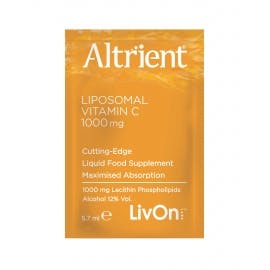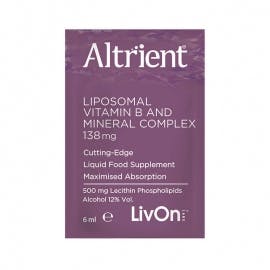Nutrition tips to help you get ahead of family stress
When faced with stressful situations we all cope and react differently. Some members of your family may have a higher tolerance to stress and be able to function normally regardless of what’s happening around them. Some relatives may even thrive on a little stress or even utilise stress as a motivational tool for getting things done. Other family members may have a very low-stress tolerance threshold and even the slightest inkling of stress can cause them to become very unsettled, withdrawn or unpredictable.
Top triggers for family stress
As parents get to know their children it becomes easy to second-guess which situations or circumstances are likely to trip them up emotionally and cause them to unravel. There are the obvious stress landmarks – issues at school, exams, moving house, getting divorced, caring for an elderly relative or changing jobs – all of these impact on family dynamics. But often we are so busy focussing on the big events that we fail to address or even acknowledge the day-to-day background stresses that just become normalised. Being unhappy in your job, working long hours, having a heavy workload, experiencing poor management, difficult working relationships, unclear expectations of your role or not having a say in the decision-making process are all work related stresses that can over time build up. Coming home at the end of a long working day feeling tired, overwhelmed and under appreciated can ripple out into the family environment.
Financial worries, relationship disharmony and stresses of parenting of young children or troublesome teenagers can all cause communication issues and a stormy home landscape. Burying your head in the sand will not make things magically improve! Make it your mission to change the way you communicate and you’ll lay down the stepping stones towards a more settled homelife. Become the person who finds a way to dissipate a family argument instead of being defensive or reactive. Explore ways to find support at work or redefine your role so that you can enjoy work again and come home energised and excited about the day you’ve had. This can be an inspiring energy to be around!
Short-term stretch
The human body is naturally wired to react to short-term stress by initiating a cascade of physiological responses that direct resources to the brain, lungs, eyes, heart, nervous system and muscles. This enables us to think and take action, so we can manoeuvre quickly away from potentially threatening or dangerous situations. This reaction is designed for sudden events and while these vital areas of the body become supercharged this tends to be at the expense of other ‘non-action’ body zones such as digestion and the skin. The body also increases clotting factors in the blood to help reduce blood loss should we become wounded. All of these factors are an easy stretch to maintain in the short-term and the body can recover and rebalance itself effectively, leaving little lasting damage. However, these responses to stress are not designed to be maintained indefinitely, and in the long-term these natural stress responses can have worrying implications particularly for the cardiovascular and nervous systems.
Long-term impact
The modern-day ongoing emotional, financial, relationship, parenting or work-related stresses that many of us face are very different from the life-or-death stress that our caveman ancestors experienced. When short-term stress morphs into long-term stress the human body starts to suffer, as long-term stress can be impactful on our health and wellbeing. Over time the adrenal glands, thyroid, digestive system, skin, heart and immune system may start to feel the strain and struggle to function optimally. Bouts of energy dips, low mood, headaches, frequent infections, skin problems, poor sleep, muscle aches and pains and unsettled digestion are tell-tale signs associated with ongoing stress. So how can you best support yourself and your children when experiencing the physical and emotional effects of stress? Well, a healthy diet and lifestyle alongside restorative sleep can go a long way in building resistance to stress for all family members.
Stress balancing diet and lifestyle tips
Caffeine check - Knocking back cupfuls of caffeine may put an already frazzled nervous system into hyperdrive making you irritable and snappy! In the short-term caffeine can bust through feelings of procrastination and switch on focus and drive to help crack through that to-do list. However, caffeine and long-term stress are not a match made in heaven. Limit tea or coffee, keep your body hydrated with coconut water, hot water and lemon or herbal teas to help your cognitive function stay fired-up rather than flagging.
Complex carbs - Creating sustainable energy and an upbeat mood across the day can help you stay one-step ahead of stress. Swap out refined carbs (white bread, white rice, white pasta) and sugary foods, snacks and drinks which tend to give a short-lived burst of energy followed by an almighty energy crash. Instead focus on complex carbs such as wholegrains (brown bread, brown rice, wholegrain pasta), lentils, pulses and fresh fruits and vegetables for more consistent energy across the day.
Essential vitamins - Long-term exposure to stress tends to deplete B-vitamins and also vitamin C. This could be because, unlike other vitamins, B’s and C are not stored in the body so a daily supply is essential, and stress may increase the need for both these vitamins. When taking dietary supplementation, it is important to choose a high-quality food supplement providing highly absorbable sources of the nutrients. Liposomal forms of certain nutrients may provide an optimised level of absorption compared to other forms of the same nutrients.
Sleepy suggestions - Sleep helps reset and refresh the body, topping up the energy tank ready for a new day of physical and mental activity. Without adequate sleep you are likely to feel tired, overwhelmed and have impaired cognitive function and performance. When the stress hormone cortisol soars too high for too long this can disrupt the circadian rhythm and impair sleep hormones such as melatonin making it difficult to naturally drift off to sleep. The mineral magnesium helps to offset the effects of cortisol, supporting relaxation, calming the mind and the nervous system and encouraging restful sleep. When taking dietary supplementation, it is important to choose a high-quality food supplement providing highly absorbable sources of the nutrients. Choosing a liposomal encapsulated magnesium helps provide you with a form of magnesium that has more efficient absorption than standard magnesium supplements.
Author - Susie Debice BSc Hons Dip ION
Food Scientist and Nutritional Therapist



.jpg?auto=format&q=45&w=262&trim=auto)
.jpg?auto=format&q=45&w=262&trim=auto)
